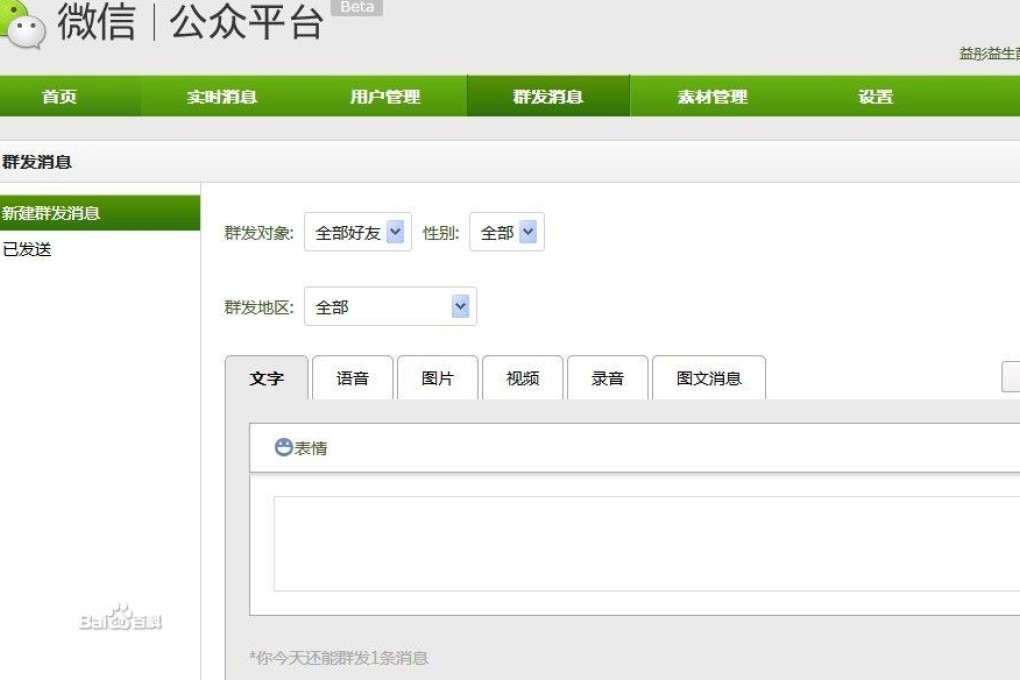Advertisement
Locustland | New WeChat platform attracts indie publishers, and censorship may be close behind
Political writers have repurposed Tencent's new WeChat enterprise accounts as mobile publishing platforms.
Reading Time:2 minutes
Why you can trust SCMP

Tencent's continued ability to ignore Chinese government censorship protocol as it takes its highly successful WeChat app overseas remains something of a mystery.
Advertisement
However at a press conference in Hong Kong Wednesday, Tencent president Martin Lau revealed, Ming Pao reports, the company maintains different versions of the mobile messaging application for different markets, seemingly in the same manner Google abides by the laws of the different countries in which it operates products - in Tencent's case, bases WeChat servers.
Earlier this year, Tencent claimed it was just a glitch when WeChat was caught censoring messages sent by users outside mainland China, a feature it would seem Tencent built specifically for mainland WeChat users but forgot to disable for international users - and yet appears to keep off now for standard users inside China.
That aside, one upside for Chinese-reading WeChat users is the app's fancy back-end publishing platform which since its introduction last month has attracted a growing community of independent publishers. With a public account, WeChat users can now push a variety of types of content to all their subscribers, groups they create themselves, to 'followers' of one gender, or those in a specific part of China.
However while WeChat's public platform's perhaps biggest edge over Sina Weibo is a lack of zombies to scare off potential readers, there have already been complaints of censorship; the New York Times' WeChat account, for instance, exists but lies blank. One Southern Weekly account has reportedly disappeared altogether.
Advertisement
Earlier this week, Beijing Institute of Technology School of Law professor Xu Xin, who publishes almost daily through WeChat on various legal issues, republished a post from fellow WeChatter and China Procuratorial Press executive Zhao Zhigang.

Advertisement
